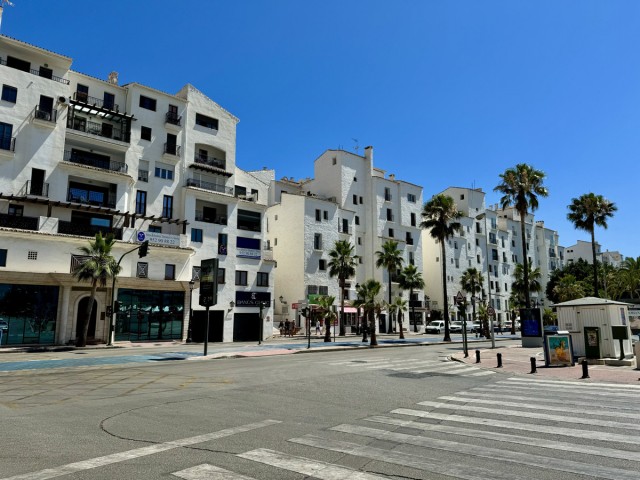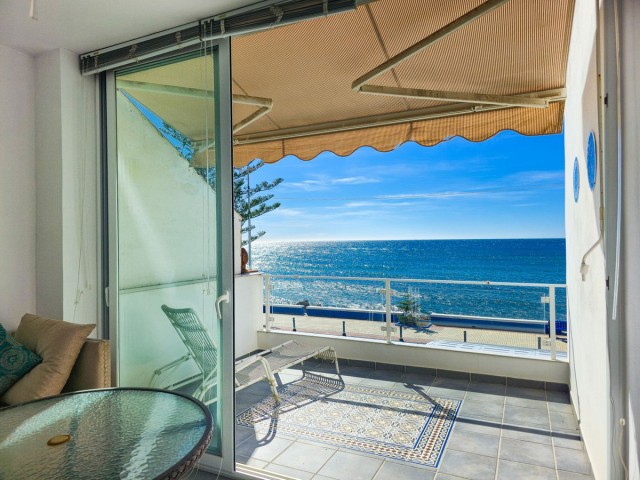What does a "distressed property sale" in Spain mean?
A "distressed sale" refers to a situation in which a property is being sold under unfavourable or urgent circumstances, often at a price lower than its market value. This can occur for various reasons, such as financial difficulties, foreclosure, divorce, or the need for a quick sale. In the context of real estate in Spain, a distressed sale might involve properties being sold by individuals or financial institutions facing financial challenges.
Buyers interested in distressed sales may find opportunities to purchase properties at a lower price than they would typically fetch in a regular market transaction. However, it's important to note that these properties may come with additional risks or complications, such as potential maintenance issues, outstanding debts, or legal complications.
When considering a distressed sale in Spain or any other location, it's crucial to conduct thorough due diligence, work with experienced professionals, and understand the potential challenges associated with such transactions. Consulting with a real estate agent, lawyer, or financial advisor can be beneficial to navigate the complexities involved in distressed property purchases.
Why would someone want to purchase a "distressed sale" in Spain?
There are several reasons why someone might be interested in purchasing a distressed sale property in Spain:
- Lower Purchase Price: Distressed properties are often priced below their market value, making them attractive to buyers looking for a potential bargain. This can be an opportunity for investors or homebuyers to acquire a property at a more affordable cost.
- Investment Opportunities: Investors may see distressed sales as an opportunity to buy properties at a lower price, with the potential for appreciation in value over time. They may aim to renovate and resell the property (flip), rent it out for a steady income, or hold it for long-term capital appreciation.
- Quick Acquisition: Distressed sales often involve a sense of urgency on the seller's part, which can lead to faster transaction processes. Buyers looking for a quick acquisition may find distressed properties appealing due to the potentially expedited closing timelines.
- Unique Properties: Some distressed properties may have unique features or locations that make them desirable despite their condition. Buyers with a vision for renovation or redevelopment may see potential in turning a distressed property into their dream home or a profitable investment.
How do you find "distressed sales" in Spain?
Finding distressed sales in Spain may require a combination of research, networking, and utilising various resources. Here are some strategies to help you identify distressed properties:
- Real Estate Listings and Websites: Check real estate listings on websites that specialise in distressed sales, foreclosures, or bank-owned properties Explore general property listing websites and look for keywords like "repossession," "bank-owned," or "distressed sale."
- Local Real Estate Agents: Work with local real estate agents who specialise in distressed properties. They may have insights into upcoming sales or know of properties facing financial challenges.
- Public Auctions: Attend public auctions where distressed properties are often sold. These auctions may be organised by banks, financial institutions, or local government authorities.
- Bank-Owned Properties: Contact banks directly to inquire about their inventory of repossessed or foreclosed properties. Banks may have departments dedicated to managing these assets.
- Legal Notices and Public Records: Monitor legal notices, public records, and official announcements for information about distressed properties, auctions, or foreclosure proceedings.
- Networking: Network with real estate professionals, property managers, and other industry insiders who may have information about distressed sales.
- Real Estate Auction Websites: Explore online platforms that specialise in real estate auctions. Some websites focus on distressed properties and provide information about upcoming auctions.
- Local Newspapers and Classifieds: Check local newspapers and classified ads for announcements related to distressed sales, auctions, or bank-owned properties.
- Real Estate Investment Groups: Join real estate investment groups or forums where members share information about potential investment opportunities, including distressed sales.
- Legal and Financial Advisors: Consult with legal and financial professionals who specialise in real estate. They may have insights into distressed properties and can guide you through the legal aspects of such transactions.
When are you most likely to encounter more "distressed property sales" in Spain?
Distressed property sales in Spain may be more prevalent during certain economic conditions or specific stages of the real estate market cycle. Here are some situations or periods when you might encounter more distressed property sales:
- Economic Downturns: During economic recessions or downturns, individuals and businesses may face financial challenges, leading to an increase in distressed sales. Job losses, economic instability, and reduced property values can contribute to a higher number of properties being sold under distress.
- Rising Interest Rates: An increase in interest rates can impact homeowners with adjustable-rate mortgages, making it more difficult for them to afford their mortgage payments. This situation may lead to an uptick in distressed sales as homeowners struggle to manage their financial obligations.
- Bank Foreclosures: Banks may initiate foreclosure proceedings on properties when borrowers default on their mortgage payments. Consequently, bank-owned properties may become available for sale, often at prices below market value.
- Divorce or Family Issues: Distressed sales may occur when individuals or families go through challenging personal situations, such as divorce or legal disputes. These circumstances can prompt the sale of properties to resolve financial issues or liquidate assets.
- Unemployment or Job Relocation: High levels of unemployment or job relocations can lead to individuals needing to sell their properties quickly, potentially resulting in distressed sales.
- Property Market Oversupply: In periods of oversupply in the real estate market, sellers may face increased competition, which can lead to price reductions and distressed sales.
- Government Auctions or Initiatives: Some distressed properties may be sold through government-sponsored initiatives or auctions. These events may occur periodically and can provide opportunities for buyers interested in distressed sales.
In which locations in Spain are you most likely to discover "distressed sales" in Spain?
The availability of distressed sales in Spain can vary depending on economic conditions, regional factors, and market trends. However, there are certain regions or types of properties where distressed sales may be more common. Here are some general considerations:
- Coastal Areas: Popular coastal areas, especially those that experienced significant property development during real estate booms, might have a higher likelihood of distressed sales. This is because these areas can be more sensitive to market fluctuations.
- Tourist Regions: Locations heavily dependent on tourism, where the real estate market may be influenced by seasonal demand, could experience distressed sales during economic downturns or disruptions to the tourism industry.
- Urban Centers: Larger cities or urban centers may see distressed sales due to various economic factors, job market conditions, and the overall demand for properties.
- Areas with Oversupply: Regions that faced an oversupply of properties during periods of rapid development might see more distressed sales as sellers compete in a saturated market.
- Regions with Economic Challenges: Areas experiencing economic challenges, high unemployment rates, or other financial difficulties may have a higher likelihood of distressed property sales.
- Bank-Owned Properties: Distressed properties often end up in the inventory of banks or financial institutions. Checking with banks about their repossessed or foreclosed properties can lead to opportunities in various regions.
- Rural Areas: While less common than in urban areas, distressed sales can also be found in rural locations. Economic factors, changing demographics, and population shifts may contribute to distressed property situations in these areas.
It's important to note that the availability of distressed sales can change over time, and market conditions play a significant role. Additionally, the impact of global economic events, such as the financial crisis, can influence the prevalence of distressed properties.
To identify specific locations with distressed sales in Spain, you may want to:
- Monitor Real Estate Listings: Check specialized real estate listings, websites, and auction platforms that focus on distressed sales.
- Consult Local Real Estate Professionals: Work with local real estate agents who have insights into market conditions and distressed property opportunities.
- Attend Auctions: Participate in public auctions where distressed properties may be sold by financial institutions or government entities.
Understanding the local market dynamics and staying informed about economic trends will help you identify potential locations with distressed sales in Spain.
Is it worth purchasing a "distressed property sale" in Spain?
Whether purchasing a distressed property sale in Spain is worth the hassle depends on various factors and your individual goals, risk tolerance, and ability to navigate potential challenges. Here are some considerations to help you make an informed decision:
Pros:
- Lower Purchase Price: Distressed properties are often priced below market value, providing an opportunity for cost savings compared to properties sold under normal market conditions.
- Investment Potential: For investors, distressed properties may offer the potential for appreciation or rental income after renovation or improvement.
- Quick Acquisition: Distressed sales often involve a sense of urgency, potentially leading to faster transaction processes for buyers seeking a quick acquisition.
- Unique Opportunities: Some distressed properties may have unique features or be located in desirable areas, making them attractive despite their condition.
Cons:
- Hidden Costs: Distressed properties may require significant repairs or renovations, leading to additional expenses. It's crucial to assess the property's condition accurately and budget for potential hidden costs.
- Legal and Title Issues: Distressed properties may come with legal or title complications. Conducting thorough due diligence and working with experienced professionals is essential to avoid legal pitfalls.
- Financing Challenges: Securing financing for distressed properties can be more challenging, as lenders may be cautious due to the property's condition or potential risks.
- Uncertain History: Distressed properties may have a history of neglect or lack proper maintenance. Understanding the property's past and potential issues is vital.
- Emotional Stress: Dealing with distressed sales, especially those involving financial difficulties or legal complications, can be emotionally taxing. Buyers should be prepared for potential challenges in the process.
Before deciding to purchase a distressed property in Spain, it's advisable to:
- Conduct Thorough Due Diligence: Assess the property's condition, inspect for potential issues, and review legal documents.
- Consult Professionals: Work with experienced real estate agents, lawyers, and financial advisors who specialise in distressed sales.
- Budget Wisely: Consider the potential costs of repairs, renovations, and any outstanding debts associated with the property.
- Understand Market Conditions: Consider the overall real estate market conditions in the specific location and the potential for property appreciation.
"Distressed sales" are cheap Spanish properties for a reason - so it's essential to keep in mind that market conditions can vary, and the occurrence of distressed sales is influenced by a combination of economic, financial, and individual factors. Monitoring the real estate market, staying informed about economic trends, and having a network of real estate professionals can help you identify opportunities for distressed property sales in Spain. Additionally, consulting with local experts and attending real estate auctions may increase your chances of finding such properties.
















